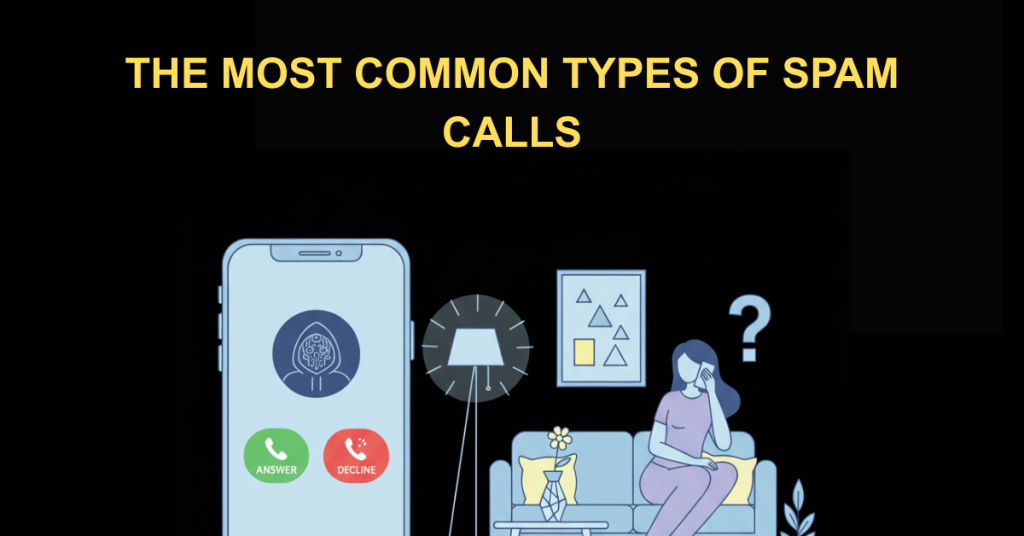Spam calls are an unfortunate reality of modern life. Despite advancements in telecommunications regulation and call-blocking technologies, millions of people continue to receive unwanted calls every day. In 2025, spam calls are more sophisticated, more targeted, and in many cases, more dangerous than ever. In this blog post, we’ll explore the most common types of spam calls that are plaguing consumers today, and how you can protect yourself from them.
1. What Exactly Is a Spam Call?
A spam call refers to any unsolicited telephone call that attempts to sell, scam, or extract information from you. These calls are often made by telemarketers, robocallers, or fraudsters. According to industry reports, Americans received over 50 billion robocalls in 2023, many of which were classified as spam. The most troubling trend? Scammers are increasingly using AI and spoofing techniques to disguise their real identities.
2. Scam Calls Posing as Government or Financial Institutions
Among the most dangerous spam calls are those impersonating trusted institutions like the IRS, FBI, or major banks. These calls often claim you owe back taxes or that your bank account has been compromised. Scammers use urgency and threats to manipulate victims.
Examples of common scripts include:
- “This is the IRS. You owe unpaid taxes. Failure to comply will result in legal action.”
- “Your account has been frozen due to suspicious activity. Please verify your identity now.”
According to the report of Federal Trade Commission (FTC), consumers lost $20 million to government impersonation scams involving cash payments in the first quarter of 2024, with the median loss per victim totaling $14,740.
3. Robocalls: Automated Nuisance at Scale
Robocalls are pre-recorded voice messages sent out by automatic dialing systems. While some robocalls are legal (such as those from political campaigns or pharmacies), many are spam or scams.
Characteristics of robocalls:
- Pre-recorded messages
- No human interaction at the beginning
- Often use caller ID spoofing to mimic local area codes
The YouMail Robocall Index tracks over 4 billion robocalls per month in the U.S. alone.
4. Cryptocurrency and Investment Scams
These spam calls promise huge returns on “safe” investments like Bitcoin or startup stocks. With crypto adoption increasing globally, scammers have capitalized on FOMO (fear of missing out) to lure victims.
Common pitches include:
- “You’ve been selected for a once-in-a-lifetime crypto opportunity!”
- “Invest $500 today and earn $5,000 in a week.”
The U.S. Securities and Exchange Commission (SEC) has repeatedly warned consumers about such scams.
5. Tech Support Scams
These calls claim your computer or mobile device is infected with a virus or has been hacked. The caller pretends to be from Microsoft, Apple, or Amazon and urges you to install remote-access software like TeamViewer.
Once installed, scammers can:
- Access personal files
- Install malware
- Steal banking information
According to the FBI’s Internet Crime Complaint Center (IC3), victims lost over $800 million to tech support scams in 2022, marking it as one of the worst years for such scams.
6. “You’ve Won!” Prize and Lottery Calls
This type of call claims you’ve won a prize or sweepstake, but requires a payment to claim it — either for “processing fees” or taxes. This is a classic advance-fee scam.
Typical indicators:
- Unfamiliar sweepstakes or contests
- Urgency to respond “within 24 hours”
- Requests for payment via wire transfer or gift cards
According to 2023 data from the Federal Trade Commission (FTC), people reported losing a total of $301 million to prize and sweepstakes scams, with an average loss of $907 per victim.
Tip from FTC: Legitimate lotteries never ask you to pay to claim your prize.
7. “Grandparent” or Impersonation Scams
These emotionally manipulative calls often target the elderly, with scammers pretending to be a grandchild or other relative in urgent need of money. With the rise of AI-generated voice cloning, these calls have become even more convincing.
A 2023 Washington Post investigation showed how AI voice tools were being used to mimic family members in distress, making these scams harder to detect.
8. Legitimate Telemarketing Calls That Border on Spam
Not all spam calls are illegal. Many are from real businesses offering services like insurance, credit repair, or solar panels. While they may be legal under the Telemarketing Sales Rule (TSR), they’re often unwanted and relentless.
Common characteristics:
- Repetitive calls from the same provider
- Ignoring “Do Not Call” registry listings
- Aggressive sales tactics
Add yourself to the registry here: National Do Not Call Registry
9. How RealCall Helps You Stay Protected
While it’s impossible to stop all spam calls at the source, RealCall provides a powerful line of defense by:
- Automatically blocking known spam and robocalls before your phone rings
- Providing real-time caller ID with scam risk labels
- Updating its spam number database daily
- Allowing users to manage custom blacklists and whitelists
Whether you’re being bombarded by robocalls or targeted by high-tech impersonation scams, RealCall empowers you to stay in control of your phone again.
Conclusion
Spam calls aren’t just annoying — they’re a modern security threat. From financial fraud to emotional manipulation, these calls are designed to exploit trust, fear, and urgency. Staying informed about the types of spam calls and equipping yourself with tools like RealCall is key to protecting your time, privacy, and peace of mind.

